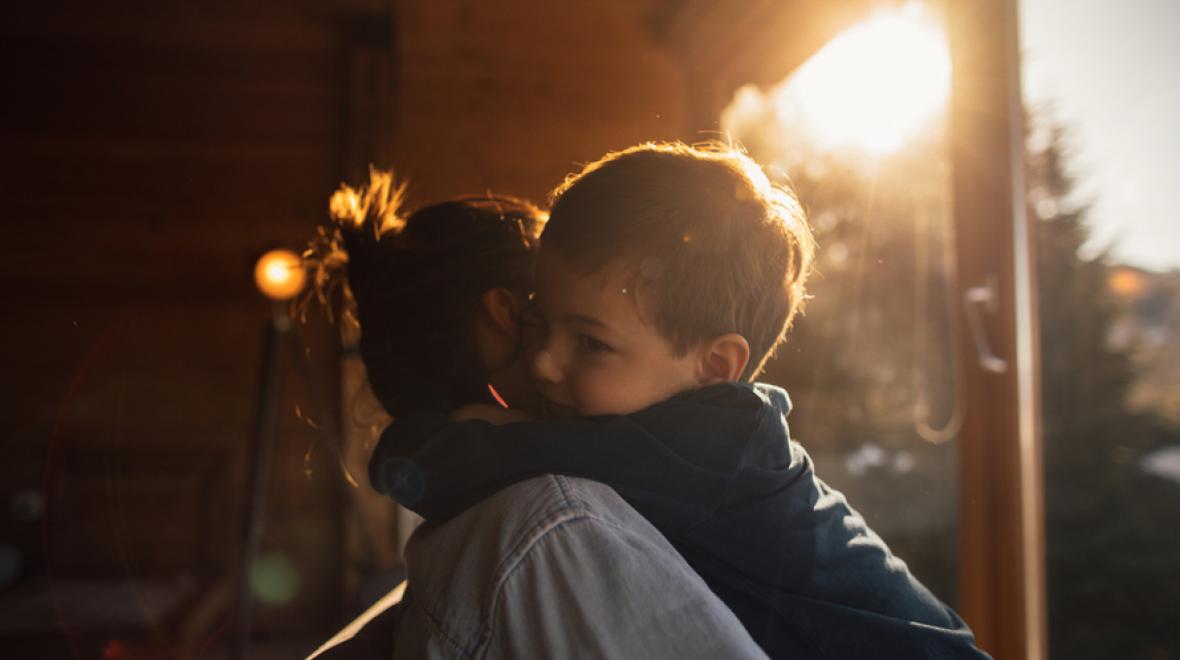
When my husband died of brain cancer at the age of 44, leaving me a widowed parent of our 9- and 11-year-olds, I did what seemed logical to me: I went looking for the book that would tell me what to do. How to raise grieving kids while grieving myself. How to support them and — hopefully — not completely ruin their lives. How to do this thing called “widowed parenting.”
Read more from Jenny Lisk:
This Mother Is on a Mission to Help Widowed Parents and Their Children Thrive
25 Practical Ways to Help a Friend Through the Illness or Death of a Spouse
After all, if your kid goes to a therapist weekly, a peer grief group monthly and a grief camp for a few days in the summer — and frankly, that would be a lot of grief work — there are still somewhere around 300 days left in the year where it’s all on you, the widowed parent, to figure out what to say and what to do. And it’s not easy. I felt completely lost.
As I searched for answers for my own family, I wanted to share what I was learning with other widowed parents. I decided to interview grief and loss experts, other, more “experienced” widowed parents, and people who had lost a parent at a young age — I would record our conversations and make them available to widowed parents everywhere to listen to as they walk their dogs, commute to work or fix dinner.
As “The Widowed Parent” podcast celebrates its one-year anniversary this month — Children’s Grief Awareness Month — I find myself reflecting on what I’ve learned so far. Here are some key takeaways:
Be honest with your kids
The number one thing I’ve learned from my podcast guests is to always be honest with your kids — even if the cause of the parent’s death is difficult to discuss. Sometimes parents try to protect their kids by withholding the truth — say, by telling the kids their parent died of an accident or a heart attack, when they really died by suicide or a drug overdose. This can actually make an already terrible situation much worse. Eventually the kids will find out the truth, and they will feel betrayed by their surviving parent — the one person they absolutely need to be able to trust. It’s much better to have the hard conversations in the moment than to repair the damage caused by mistrust later.
Include your kids when planning anniversaries and remembrances
I talked with a widowed mom recently who worried about the upcoming first anniversary of her husband’s death. She was trying to figure out how to spend the day. I encouraged her to talk with her kids — to brainstorm ideas together, and to talk about how they were feeling about this date approaching. You can’t really pick the wrong way to mark the occasion if you talk about it ahead of time, are honest with each other, and are willing to make adjustments as you go. You can, however, really mess up the day if you make assumptions and plans without your kids’ input.
I don’t have to have all the answers when my kids have questions
As a parent, it’s tempting to think we should know all the answers. We’re conditioned to it from the earliest days of our parenting. Why can’t I have dessert before dinner? Why do I have to go to bed? Those are easy enough to answer. But what about when the questions are impossible to answer?
Why did Dad have to die?
There are no good answers to that one. You can — and should — explain the facts, of course; but when a question such as this one doesn’t really have an answer, try to connect with your child around their emotions: “I don’t know. I really wish I did. I sure miss him, and I can tell you do, too.”
When I interviewed Sasha Mudlaff, founder of Hamilton’s Academy of Grief and Loss in Des Moines, Iowa, she said, “One of the things I love to say to children, no matter what their question is, is, ‘That is a great question. Thank you for asking that question.’ Even if my next words are going to be, ‘I don’t know either.’” She added, “If I am constantly saying, ‘Wow, what a great question’ — I just think it’s keeping that door open so that the child knows they can ask me more questions.”
It’s okay to be a “good enough” parent
It’s easy to feel that we need to somehow be the “perfect parent” after our spouse dies. After all, our kids have already gotten the short end of the stick by losing one parent at such a young age. We somehow need to be perfect to compensate for that hardship, right?
In fact, nothing could be further from the truth. When I interviewed Dr. Justin Yopp, a clinical psychologist with the Widowed Parent Program at the University of North Carolina, he said, “Children don’t need perfect parents. And not only do they not need perfect parents, but children actually grow from and benefit from having parents who are not perfect, but are just ‘good enough.’ Allowing your children to experience some distress and allowing your children to learn how to tolerate that distress and kind of get through that distress is actually better than making sure your children have a worry-free life.”
Grief support for kids and teens is important
Sometimes widowed parents wonder if their kids need grief support, and where to find that support. There are, of course, mental health professionals in every community, and your child may benefit from seeing a counselor.
For many families, a peer grief group provides much-needed support. Connecting with peers who have also lost a parent helps kids feel like they are not alone, and the activities provide opportunities for participants to remember their loved one and integrate their loss into their stories. A grief center will typically have groups for different ages of kids, and many have a group for the parents, too.
When I spoke with Vicki Jay, the chief executive of the National Alliance for Grieving Children (NAGC), she articulated why it’s so important to support grieving kids and teens: “It’s my belief that the earlier we can provide support for anybody who’s had a loss, then the healthier adult that person is. It’s much easier to support a grieving child than it is to heal a broken adult.” She went on to say that we need “to support these kids while they’re kids, to help them have a healthy journey rather than maybe a not-so-healthy journey.”
To find a grief support program near you (in the United States or Canada), check this listing from the NAGC.
You are not alone
I ask all my guests on the show to wrap up our discussion by answering one question: “If you could say one thing to newly widowed parents, what would it be?” It’s remarkable how many answers contain some version of this essential message to widowed parents: You are not alone.
However, new widowed parents often feel lost and alone, and uncertain as to how to support their kids. It doesn’t have to be this way. I started the “The Widowed Parent” podcast to help widowed parents increase their family’s well-being — because all kids should have a chance to thrive, even if their parent has died. I hope you will learn as much from my guests on the podcast as I have.











